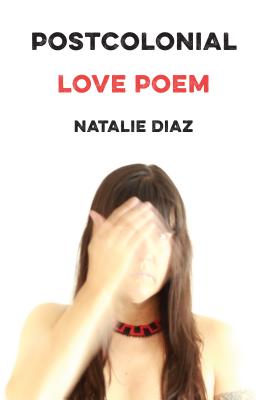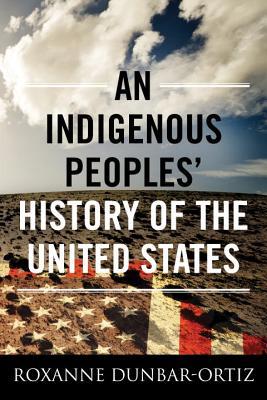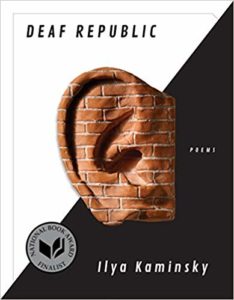This week, I finished two books, both by indigenous authors. Postcolonial Love Poem is Mojave and an enrolled member of the Gila River Indian Tribe. Activist Roxanne Dunbar-Ortiz believes her mother was Native American but assimilated when she married Dunbar-Ortiz’s father. I highly recommend both books, which take on America’s history as a colonizing country—something the U.S. frequently pretends not to be.
 Postcolonial Love Poem by Natalie Díaz
Postcolonial Love Poem by Natalie Díaz Published by Graywolf Press on March 3, 2020
Genres: Poetry
Pages: 107
Format: Paperback
Buy on Amazon, Buy on Bookshop
This post contains affiliate links you can use to purchase the book. If you buy the book using that link, I will receive a small commission from the sale.
Goodreads
Natalie Diaz’s highly anticipated follow-up to When My Brother Was an Aztec, winner of an American Book Award. Postcolonial Love Poem is an anthem of desire against erasure. Natalie Diaz’s brilliant second collection demands that every body carried in its pages—bodies of language, land, rivers, suffering brothers, enemies, and lovers—be touched and held as beloveds. Through these poems, the wounds inflicted by America onto an indigenous people are allowed to bloom pleasure and tenderness: “Let me call my anxiety, desire, then. / Let me call it, a garden.” In this new lyrical landscape, the bodies of indigenous, Latinx, black, and brown women are simultaneously the body politic and the body ecstatic. In claiming this autonomy of desire, language is pushed to its dark edges, the astonishing dunefields and forests where pleasure and love are both grief and joy, violence and sensuality.
Diaz defies three conditions from which she writes, a nation whose creation predicated the diminishment and ultimate erasure of bodies like hers and the people she loves: “I am doing my best to not become a museum / of myself. I am doing my best to breathe in and out. // I am begging: Let me be lonely but not invisible.” Postcolonial Love Poem unravels notions of American goodness and creates something more powerful than hope—a future is built, future being a matrix of the choices we make now, and in these poems, Diaz chooses love.
My favorite poems in this collection were “American Arithmetic,” “They Don’t Love You Like I Love You,” “The First Water is the Body,” and “exhibits from The American Water Museum.” I liked them all for different reasons. I was familiar with “American Arithmetic” already. I think someone on Twitter pointed me in that poem’s direction a few years ago. It’s a clever use of statistics to make a point. “They Don’t Love You Like I Love You” plays with lyrics from “Maps” by the Yeah Yeah Yeahs. I wanted to teach that poem this year, but we had a snow day, and I had to move some things around. I liked the two water poems for the messages about water and life. This collection was an excellent read on the train to and from Boston yesterday.
 An Indigenous Peoples' History of the United States (ReVisioning American History, #3) by Roxanne Dunbar-Ortiz
An Indigenous Peoples' History of the United States (ReVisioning American History, #3) by Roxanne Dunbar-Ortiz Published by Beacon Press on September 16, 2014
Genres: Nonfiction
Pages: 296
Format: E-Book, eBook
Buy on Amazon, Buy on Bookshop
This post contains affiliate links you can use to purchase the book. If you buy the book using that link, I will receive a small commission from the sale.
Goodreads
The first history of the United States told from the perspective of indigenous peoples.
Today in the United States, there are more than five hundred federally recognized Indigenous nations comprising nearly three million people, descendants of the fifteen million Native people who once inhabited this land. The centuries-long genocidal program of the US settler-colonial regimen has largely been omitted from history. Roxanne Dunbar-Ortiz offers a history of the United States told from the perspective of Indigenous peoples and reveals how Native Americans, for centuries, actively resisted expansion of the US empire. Spanning more than four hundred years, this classic bottom-up peoples’ history radically reframes US history and explodes the silences that have haunted our national narrative.
I read this book in fits in starts. I first started to read it some time back, I forget how long ago, but I had to set it aside for reasons I no longer remember (probably grad school). I picked it up again recently as I was teaching a unit in my Social Justice class on Native history and literature. As advertised, this book examines the history of America through the eyes of indigenous people. I was looking for a bit more about more recent history, including activism on the part of the American Indian Movement and more recent strides such as the Indian Child Welfare Act (which is under threat) and cultural revival efforts. Still, this book was an interesting introduction to the many ways the United States’ genocide and war against indigenous people have impacted today’s events. For instance, I happened to note a politician on TV using the term “Indian Country” to refer to a country/territory hostile to Americans, and it was right after I had read in Dunbar-Ortiz’s book that the military still uses this term. The legacy of the horrible racism and greed perpetrated against indigenous people is still very much a part of our country today.
 Deaf Republic by
Deaf Republic by 